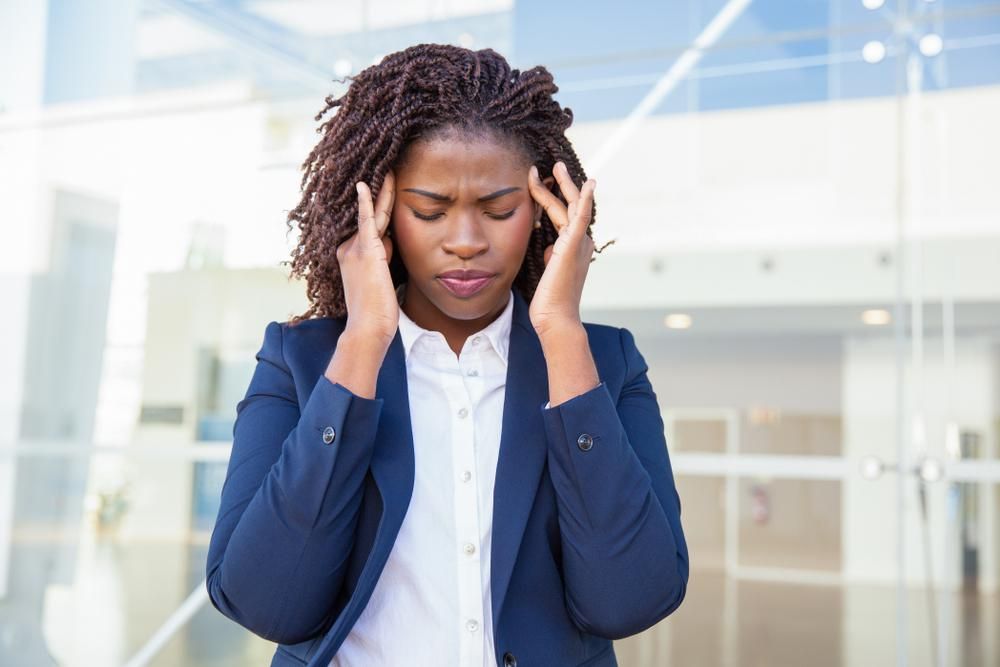Her Voice
Thirteen days is the number of days between my last period. It is slightly depressing, especially since it took me five years to get to the 21 days I enjoyed between each cycle for the past year. It is less about an irregular period and more about the glaring truth that something is wrong with me. Combined with debilitating fatigue, migraines, and a host of gut issues, there is no way to hide from my body's need for a reprieve.
I've tried for many years to figure out what's wrong with me, from doctors to specialists, homeopathic remedies, and following a FODMAP diet - an elimination diet of food that causes gas, bloating, stomach pain, diarrhea, and constipation. I've had some progress, but nothing that sticks. It feels like I'm in a never-ending episode of The Twilight Zone, haunted by an undiagnosed illness.
One thing for sure, I know I'm not crazy. The pain I feel is real.
Now that it's affecting my daily life, I feel more responsible for figuring out the cause. The most menial tasks feel like a mountain of work, and my energy drops so low that all I can do is sleep. My projects and collaborations have suffered as a result of what's going on. As a certified life coach, my job is to help people fix their lives, but what happens when I'm depleted, sick, and tired? Who helps me? I turn to trusted professionals, and I feel let down. I know getting tested offers hope at what might be wrong, but it is not a panacea to managing my symptoms.
The healthcare system has a history of implicit bias towards patients based on their race and gender. To be a Black woman means my experience with some healthcare professionals has left me thinking whatever I'm feeling is all in my head after I receive negative test results. The Today Show reported the following:
"A 2016 study found that nearly half of first and second-year medical students believed that Black people have thicker skin than white people, and perceived Black people as experiencing less pain than white people, an idea born from 19th-century experiments that were conducted by a (white) physician named Thomas Hamilton."
This is one of the many reasons Black people and people of color feel like their pain is not taken seriously. As a result, some people choose not to share their symptoms with doctors or take matters into their own hands.
When it comes to healing your body, you have to be all in it. There is no all-in-one-type of approach to personal health. It means you are in the driver's seat navigating the path to making conscious decisions to be healthy in mind, body, and spirit. You have the power to ask for more information when discussing your issues with physicians and choosing the best care provider for your needs.
That means it's OK to find another doctor that can communicate better, where you can build mutual trust and respect.
If you are currently undiagnosed and feeling miserable, I see you. I know you can feel overlooked, even with a lot of evaluations. You have to remain hopeful that one day you will find the cause of your pain. Until then, find a support system that recognizes what you're going through and empathizes with it. You could use cheerleaders, people who will cheer you on during tough times. Educate yourself on the symptoms you're experiencing.
I find it extremely helpful to keep a record of my symptoms. No detail is too small, especially when you're early in your journey. You may go down the WebMD rabbit hole, so take everything with a grain of salt. It may also be worth implementing a plan to work around fatigue. I start projects earlier than usual and jot down notes rather than creating big picture messaging, which can take longer and require more focus than I have. It keeps my work current without compromising deadlines. And if you need more time, ask for it, don't wait until the last minute for fear of retribution.
Last but certainly not least, be aware of the seriousness of depression. Although you may not be experiencing symptoms at this moment, depression is one of the most common complications of many chronic illnesses. Be kind to yourself during these moments.
Protect your energy by removing things that don't serve you. Your health is the priority. You cannot help anyone until you take care of yourself.
Featured image by Shutterstock
ALSO ON XONECOLE
